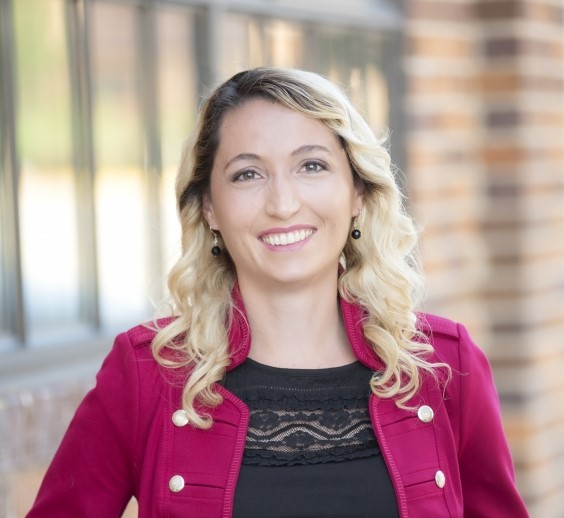Dayton Docket

Dayton Law Hybrid Student Helps Draft Organ Transplant Legislation
Sarah Covington has been through the stress of law school exams, but this meeting was a different kind of test of her legal skills with a lot more than a grade riding on it.
"I'd rather be sitting over coffee talking about this proactively than sitting with a box of tissues because the unthinkable happened," Covington says.
Covington's meeting was with a representative from her home state of South Dakota to talk about drafting a bill to prevent organ transplant discrimination. That bill has since passed the South Dakota House and is being considered by the Senate.
Covington, who is a student in the Law@Dayton Online Hybrid J.D. Program, first learned about the issue only a few months before when her 15-year-old daughter Parker was about to undergo knee surgery. It was one of many surgeries Parker has had in her life, after being born with a rare genetic condition.
This latest surgery potentially involved using a part from a cadaver. When researching the surgery, Covington discovered issues around those with disabilities getting organ transplants. Parker ended up not needing the part from the cadaver, but given her condition, she will need a future heart surgery that could involve a valve replacement. Covington didn't want her to be less likely to receive her transplant because of her genetic condition.
"Someone's disability shouldn't be the sole reason they aren't granted an organ transplant," Covington says.
So Covington brought up the issue to someone at a gathering of the South Dakota Bar Association and they helped her set up that coffee meeting with the state representative.
From there Covington says it's been a whirlwind, with her taking part in the committee to draft the bill and going to the South Dakota House to talk about its importance, all while using skills she's learning in her law classes.
"I wouldn't be doing any of this without being a law student at Dayton," Covington says. "I learned about persuasive authority in my first semester in law school. This bill is predicated on that. We looked to other states that adopted similar bills and used that to draft our own bill and garner support in our state. It's great to see what I learned at the onset of law school continuing to have a powerful impact."
Covington’s advocacy shows how the Law@Dayton Hybrid J.D. Program provides students more than just legal training.
“Being able to actually put the skills that she learned in her first year of law school into practice is an amazing accomplishment,” says Assistant Dean of the Law@Dayton Hybrid J.D. Program and Professor of Lawyering Skills Victoria VanZandt. “Even more impressive is how she uses her education to address needs in her community. As a Marianist law school, we are called to employ our head, our heart and our hands in service to others. Sarah truly embodies our educational tradition.”
Covington says others in her Hybrid J.D. class have even looked into getting similar bills passed in their states.
"I'm so grateful we're doing this based upon a proactive approach," Covington says. "I know in terms of political persuasion you have to have the unthinkable happen to gain traction. We had a great surgical experience, but we were able to identify changes needed and work to pursue those in the states that haven't taken that step."
